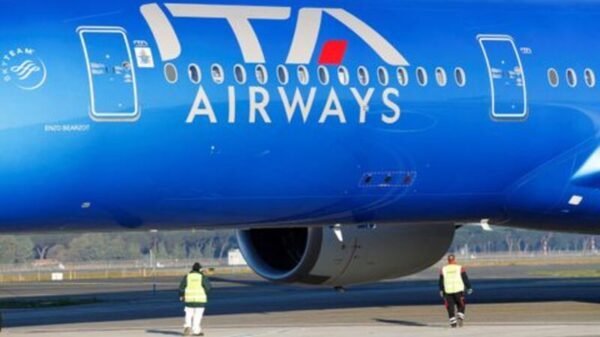The Impact of COVID-19 on the Travel and Hospitality Industry
Explore the effects of COVID-19 on the travel and hospitality industry. Learn about the challenges, changes, and new opportunities for the industry.
KEY TAKEAWAYS
- COVID-19 has had a significant impact on the travel and hospitality industry.
- Travel restrictions and border closures have severely limited international travel.
- The decline in travel demand has resulted in decreased revenue for airlines, hotels, and other travel businesses.
- Suspensions of flights and cancellations have disrupted travel plans and caused financial losses.
- The hospitality industry has experienced hotel closures and decreased occupancy rates.
- Layoffs and unemployment have been prevalent in the hospitality sector.
- The industry has had to adapt to new health and safety protocols to ensure customer safety.
- Real-world scenarios include airline industry struggles, hotel industry transformation efforts, and the impact on tourism and attractions.
- Some airlines have faced bankruptcies and relied on government assistance for survival.
- Hotels have been repurposed as quarantine facilities and have implemented contactless technology and enhanced cleaning measures.
- Popular tourist destinations have faced closures, and there has been a shift in travel preferences towards outdoor and nature-based activities.
The COVID-19 pandemic has left an indelible mark on the global landscape, significantly impacting various sectors, with the travel and hospitality industry bearing a disproportionate brunt. As the world grappled with the unprecedented challenges brought about by the pandemic, the travel and hospitality industry found itself in uncharted territory. With travel restrictions, border closures, and plummeting demand, the industry faced a perfect storm of adversity.
This article delves into the profound effects of COVID-19 on the travel and hospitality industry. From the grounding of flights and closure of hotels to the financial losses incurred and the subsequent layoffs, it explores the multifaceted repercussions of the pandemic. Moreover, it examines the industry’s resilient spirit as it adapts to new health and safety protocols, seeking innovative ways to navigate this turbulent terrain.
Real-world scenarios of airline struggles, hotel transformations, and the impact on tourism and attractions further highlight the ripple effects of COVID-19. This comprehensive analysis aims to provide a deeper understanding of the challenges faced by the travel and hospitality industry, shedding light on its remarkable resilience in the face of adversity. Join this exploration of an industry forever transformed by the COVID-19 pandemic.
Background
The COVID-19 pandemic has had a profound and lasting impact on the global travel and hospitality industry. The outbreak of the virus, caused by the novel coronavirus SARS-CoV-2, quickly spread across the world, leading to widespread health concerns and disruptions to various sectors, including travel and hospitality.
- Emergence of COVID-19 and its Impact on Travel
COVID-19 was first identified in late 2019 in Wuhan, China, and quickly escalated into a global pandemic. The highly contagious nature of the virus and its ability to spread through respiratory droplets prompted governments and health authorities worldwide to implement strict measures to limit its transmission. As a result, the travel industry faced significant challenges as travel restrictions, lockdowns, and quarantine measures were imposed to mitigate the spread of the virus.
- The Devastating Effects on the Hospitality Industry
The hospitality industry, encompassing hotels, resorts, restaurants, and other accommodation and food service establishments experienced unprecedented disruptions due to COVID-19. Travel restrictions and reduced travel demand led to a sharp decline in bookings and occupancy rates, resulting in financial losses for businesses. Many hotels were forced to temporarily close their doors or operate with minimal staff, leading to significant revenue declines and job cuts.
- Traveler Behavior Changes in Response to the Pandemic
The pandemic caused a notable shift in traveler behavior and preferences. Concerns over health and safety led to a decrease in travel demand, particularly for non-essential and international travel. Travelers became more cautious and prioritized destinations with low infection rates and robust health protocols. They also sought accommodations and experiences that offered enhanced cleanliness, social distancing measures, and contactless services.
- Government Intervention and Support
Recognizing the critical role of the travel and hospitality industry and the immense challenges it faced, governments worldwide implemented various measures to support businesses and protect jobs. Bailout packages, financial assistance, and loan programs were introduced to help airlines, hotels, and other travel-related businesses withstand the financial impact of the pandemic. Additionally, governments collaborated with health organizations to establish health and safety guidelines for the industry, ensuring a consistent approach to managing the risks associated with travel during the pandemic.
The background of the COVID-19 pandemic sets the stage for understanding the subsequent impact on the travel and hospitality industry. The emergence of the virus, its devastating effects on the hospitality sector, changes in traveler behavior, and government intervention collectively shaped the challenges and transformations witnessed in the industry. The following sections will delve deeper into specific aspects of the impact, examining the effects on the travel industry, the hospitality sector, and real-world scenarios that illustrate these challenges and adaptations.

Photo: Reuters
The Impact of COVID-19 on the Travel Industry
A.Travel Restrictions and Border Closures
The COVID-19 pandemic unleashed a wave of travel restrictions and border closures across the globe. Countries swiftly implemented stringent measures to curb the spread of the virus, severely limiting international travel. Travelers faced lockdowns, mandatory quarantine periods, and complex entry requirements, making travel a challenging and uncertain endeavor. These restrictions had a profound impact on the travel industry, disrupting tourism flows and causing a significant decline in international arrivals.
- Decline in Travel Demand
As the pandemic intensified, fear and uncertainty among travelers led to a sharp decline in travel demand. Concerns about health risks, travel restrictions, and economic instability prompted individuals and businesses to cancel or postpone their travel plans. International tourism came to a virtual standstill, with travelers opting to stay close to home or avoid non-essential travel altogether. This decline in demand had far-reaching consequences for airlines, hotels, tour operators, and other travel businesses, resulting in substantial revenue losses and operational challenges.
- Suspension of Flights and Cancellations
To mitigate the spread of COVID-19, airlines worldwide faced unprecedented disruptions. Airlines were forced to suspend numerous flights, both domestic and international, as travel demand plummeted. Flight cancellations became the norm rather than the exception, leaving passengers stranded and plans upended. This not only caused significant inconvenience for travelers but also dealt a severe blow to the airline industry, leading to financial losses and increased vulnerability.
D.Financial Losses and Job Cuts
The travel industry faced dire financial consequences due to the COVID-19 pandemic. With travel restrictions, reduced demand, and widespread flight cancellations, airlines and other travel businesses experienced substantial revenue declines. This resulted in severe financial losses, jeopardizing the survival of many companies. To stay afloat, cost-cutting measures became inevitable, leading to widespread job cuts and layoffs across the industry. The impact was particularly devastating for airline staff, hotel employees, and other hospitality workers, leaving them facing financial uncertainty and unemployment.
The travel industry, once a vibrant and thriving sector, found itself grappling with unprecedented challenges brought about by the COVID-19 pandemic. Travel restrictions, declining demand, flight suspensions, financial losses, and job cuts shook the industry to its core. The next section explores the impact of COVID-19 on the hospitality industry and how it has weathered the storm of this global crisis.
The Impact of COVID-19 on the Hospitality Industry
- Closure of Hotels and Accommodation Facilities
The COVID-19 pandemic dealt a severe blow to the hospitality industry, leading to the widespread closure of hotels and accommodation facilities. As travel restrictions and lockdown measures were implemented, hotels faced significant declines in bookings and occupancy rates. Many establishments, especially those heavily reliant on international travelers, were forced to temporarily shut down or operate at reduced capacities. This sudden halt in operations resulted in significant financial losses for hotel owners and staff.
- Decreased Occupancy Rates and Revenue
With travel restrictions, reduced travel demand, and concerns over health and safety, the hospitality industry experienced a sharp decline in occupancy rates and revenue. Hotels that managed to remain open faced significant challenges in attracting guests. Business travel came to a halt, and leisure travelers became hesitant to book accommodations. The lack of events, conferences, and tourism activities further contributed to the decrease in occupancy rates, impacting the financial viability of hotels and other accommodation providers.
- Layoffs and Unemployment in the Hospitality Sector
The unprecedented impact of COVID-19 on the hospitality industry led to widespread layoffs and unemployment. As hotels faced reduced demand and financial constraints, they were compelled to reduce their workforce significantly. This resulted in job cuts across various roles, including housekeeping, food and beverage services, and front desk operations. The loss of employment had a profound impact on the livelihoods of many hospitality workers, exacerbating economic hardships in the sector.
- Adaptation to New Health and Safety Protocols
In response to the pandemic, the hospitality industry had to swiftly adapt to new health and safety protocols. Hotels and accommodation facilities implemented stringent cleaning and sanitization measures, including enhanced room disinfection and public area sanitization. Social distancing guidelines were introduced, leading to changes in common areas and dining spaces. Contactless technology, such as mobile check-ins and digital menus, became more prevalent. These adaptations aimed to instill confidence in guests and prioritize their safety during their stay.
The hospitality industry faced unprecedented challenges due to the COVID-19 pandemic. Hotel closures, decreased occupancy rates, and reduced revenue significantly impacted the sector. The resulting layoffs and unemployment further exacerbated the industry’s struggles. However, the industry demonstrated resilience by swiftly implementing new health and safety protocols to adapt to the changing landscape. The next section will explore real-world scenarios that exemplify the impact of COVID-19 on the travel and hospitality industry.

Photo: Reuters
Real-World Scenarios
- Airline Industry Struggles and Bailouts
Example 1: Airline bankruptcies and government assistance
The COVID-19 pandemic inflicted significant financial strain on airlines, leading to several high-profile bankruptcies. Major carriers faced unprecedented challenges as travel demand plummeted. To prevent the collapse of the industry, governments worldwide intervened with financial assistance packages. For instance, governments provided bailout funds and loans to struggling airlines, helping them stay afloat and maintain essential operations.
Example 2: Challenges faced by low-cost carriers
Low-cost carriers, known for their budget-friendly travel options, were particularly vulnerable to the impact of COVID-19. With their business model heavily reliant on high passenger volumes and low operating costs, the sudden decline in travel demand hit them hard. These carriers faced unique challenges in sustaining operations, managing cash flow, and adapting to changing travel restrictions and customer preferences.
- Hotel Industry Transformation and Recovery Efforts
Example 1: Conversion of hotels into quarantine facilities
In response to the pandemic, many hotels transformed their operations to serve as quarantine facilities for COVID-19 patients or returning travelers. By repurposing their spaces, hotels contributed to public health efforts and generated revenue during a time of reduced demand. This adaptation showcased the industry’s ability to quickly pivot and contribute to community needs.
Example 2: Embracing contactless technology and enhanced cleaning measures
Hotels implemented new technologies and safety measures to reassure guests and prioritize their well-being. Contactless check-ins, digital room keys, and mobile concierge services became more prevalent to minimize contact points. Enhanced cleaning protocols were also adopted, focusing on rigorous disinfection of rooms and public areas, as well as implementing social distancing measures in common spaces. These initiatives aimed to restore guest confidence and provide a safe environment for travelers.
- Impact on Tourism and Attractions
H3: Example 1: Closure of popular tourist destinations
COVID-19 led to the temporary closure of iconic tourist destinations worldwide. Landmarks, museums, amusement parks, and cultural sites were shuttered to prevent the virus’s spread. This had a profound impact on the tourism industry, as the absence of visitors meant lost revenue for local economies heavily reliant on tourism.
Example 2: Shift in travel preferences towards outdoor and nature-based activities
With concerns over crowded spaces and a desire for safer travel options, there has been a noticeable shift in travel preferences towards outdoor and nature-based activities. Travelers have embraced activities such as hiking, camping, and exploring less crowded destinations. This shift presents opportunities for destinations that can cater to these preferences, while traditional tourist hotspots may need to adapt to changing demands.
Real-world scenarios exemplify the impact of COVID-19 on the travel and hospitality industry. Airlines faced bankruptcies but received government assistance to survive. Low-cost carriers encountered unique challenges. Hotels transformed into quarantine facilities and implemented contactless technology and enhanced cleaning measures. Popular tourist destinations faced closures, while outdoor and nature-based activities gained popularity. These scenarios reflect the industry’s resilience and its ability to adapt to the evolving landscape shaped by the pandemic.
Final Thoughts
The COVID-19 pandemic has had a profound impact on the travel and hospitality industry. Travel restrictions, decreased demand, and financial losses have presented unprecedented challenges. However, the industry has shown resilience by adapting to new circumstances. Airlines have received government assistance and hotels have transformed into quarantine facilities while implementing stringent health measures. Traveler behavior has shifted towards outdoor activities, and governments are collaborating with the industry to establish safety guidelines. Though recovery is ongoing, the industry remains committed to providing safe and memorable experiences. The lessons learned and transformations witnessed will shape a more resilient and sustainable future for travel and hospitality.




































Comment Template